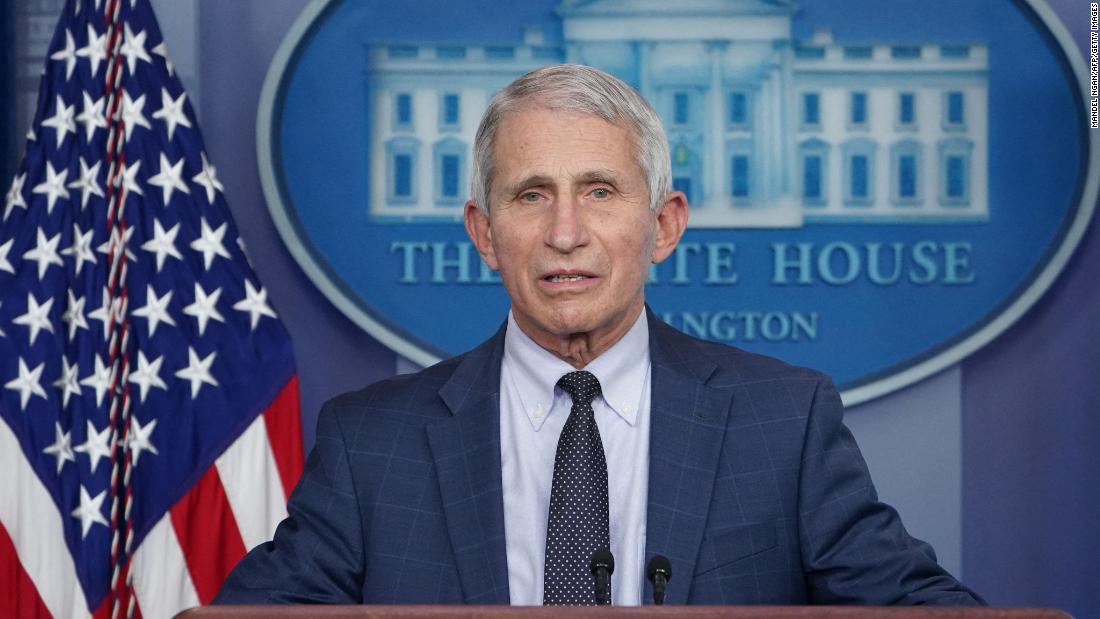Epidemic, endemic and herd immunity... Where is covid-19 going?
5:05
(CNN) --
Health officials in the Biden administration outlined Wednesday a long-term vision of a future in which the nation coexists with Covid-19, without living in crisis or facing disruption to normal life.
"We continue to move towards a time when covid does not disrupt our daily lives. A time when covid is no longer a crisis, but something we protect ourselves against and treat," said covid-19 response coordinator of the White House, Jeff Zients, during the press conference of the White House covid-19 response team on Wednesday.
Minute by minute: the latest news about the coronavirus and the omicron variant
Zients pointed to vaccines and other treatments as tools to control the virus, but, pressed on what it will take to get to that point, Dr. Anthony Fauci said the United States is not at that stage yet.
Fauci said there is still a "way to go" before cases and hospitalizations decline to what he described as an "acceptable situation."
"We're not there right now. As (US Centers for Disease Control and Prevention director) Dr. (Rochelle) Walensky said, when there are over 2,000 deaths, 150,000 hospitalizations, and there are people who are now getting infected at the rate of about 700,000 a day, we're not there yet," Fauci said.
Fauci offered no specific metrics on what "being there" would mean.
advertising
Fauci said the goal is to get to a point of "sufficient control," which he explained was not "eradication" as with smallpox or "elimination" as with the polio and measles epidemics, but rather, "an level of control that doesn't disturb us in society, that doesn't dominate our lives, that doesn't stop us from doing the things that we generally do in a normal existence.
As Europe begins to "live with the coronavirus", could the United States follow suit?
Fauci compared that control to how Americans currently live with other viruses.
"That would be a level of infection, but above all, to focus on the severity of the disease, hospitalizations and deaths that fall into the category of what we generally accept. We don't like it, but we accept it with other respiratory viruses: the virus respiratory syncytial, parainfluenza, and even the flu," Fauci said.
In addition, he said that vaccines, boosters and infection "hopefully will get us to the point where we have antivirals so we can treat people who are at high risk and where we're no longer in a threatening situation, be it for our fairness, our economy, or to allow us to live a normal life.
Part of that strategy will include vaccine sharing to get more people vaccinated outside of the United States.
Vaccination protects against hospitalization for covid-19 significantly more than a previous infection, according to a CDC study
The Biden administration also marked a foreign-shipped vaccine milestone on Wednesday, announcing that the United States shared 400 million doses of Covid-19 vaccines worldwide.
"In addition to driving progress on vaccination here at home, the United States continues to lead the effort to help vaccinate the world. Under the direction of President Biden, we are donating 1.2 billion doses of vaccine, the largest commitment in the world. And today we will reach an important milestone in our global effort: 400 million doses of vaccines shipped to 112 countries. 400 million doses shipped free of charge and with no strings attached," Zients announced at Wednesday's COVID-19 response briefing.
The United States will send an additional 3.2 million doses of Pfizer's COVID-19 vaccine to Bangladesh and 4.7 million doses to Pakistan through the Covax global vaccine delivery program, a White House official told EFE. CNN.
President of Mexico says that Covax, which distributes vaccines against covid-19 in poor countries, is "a painful and resounding failure"
Pakistan is the country that has received the most doses from the United States, with a total of 47.4 million doses sent as of Wednesday.
The United States has donated more doses than any other country, Zients noted, with a total commitment of 1.2 billion doses.
"To put America's leadership into perspective, we have sent four times as many free doses to the world as any other country," he said.
President Joe Biden announced to the UN General Assembly last fall that the US had purchased another 500 million doses of Pfizer's covid-19 vaccine, which will begin shipping this month, and is expected to be shipped. send 800 million vaccines abroad by September of this year.
Covid-19









